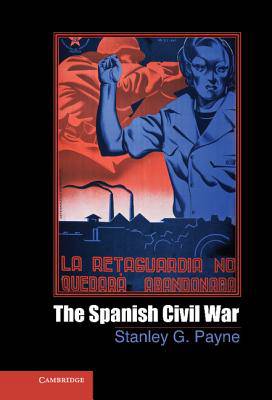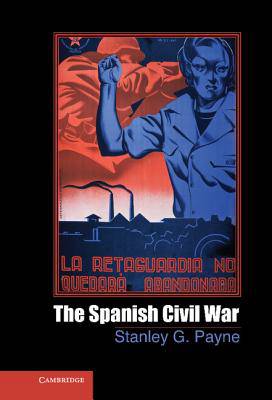
- Afhalen na 1 uur in een winkel met voorraad
- Gratis thuislevering in België vanaf € 30
- Ruim aanbod met 7 miljoen producten
- Afhalen na 1 uur in een winkel met voorraad
- Gratis thuislevering in België vanaf € 30
- Ruim aanbod met 7 miljoen producten
Zoeken
€ 90,95
+ 181 punten
Uitvoering
Omschrijving
This book presents an original new history of the most important conflict in European affairs during the 1930s, prior to the events that produced World War II - the Spanish Civil War. It describes the complex origins of the conflict, the collapse of the Spanish Republic, and the outbreak of the only mass worker revolution in the history of Western Europe. Stanley Payne explains the character of the Spanish revolution and the complex web of republican politics, while also examining in detail the development of Franco's counterrevolutionary dictatorship. Payne gives attention to the multiple meanings and interpretations of war and examines why the conflict provoked such strong reactions in its own time, and long after. The book also explains the military history of the war and its place in the history of military development, the non-intervention policy of the democracies, and the role of German, Italian, and Soviet intervention, concluding with an analysis of the place of the war in European affairs and in comparative perspective of revolutionary civil wars of the twentieth century.
Specificaties
Betrokkenen
- Auteur(s):
- Uitgeverij:
Inhoud
- Aantal bladzijden:
- 286
- Taal:
- Engels
- Reeks:
Eigenschappen
- Productcode (EAN):
- 9781107002265
- Verschijningsdatum:
- 6/08/2012
- Uitvoering:
- Hardcover
- Formaat:
- Genaaid
- Afmetingen:
- 160 mm x 231 mm
- Gewicht:
- 476 g

Alleen bij Standaard Boekhandel
+ 181 punten op je klantenkaart van Standaard Boekhandel
Beoordelingen
We publiceren alleen reviews die voldoen aan de voorwaarden voor reviews. Bekijk onze voorwaarden voor reviews.











